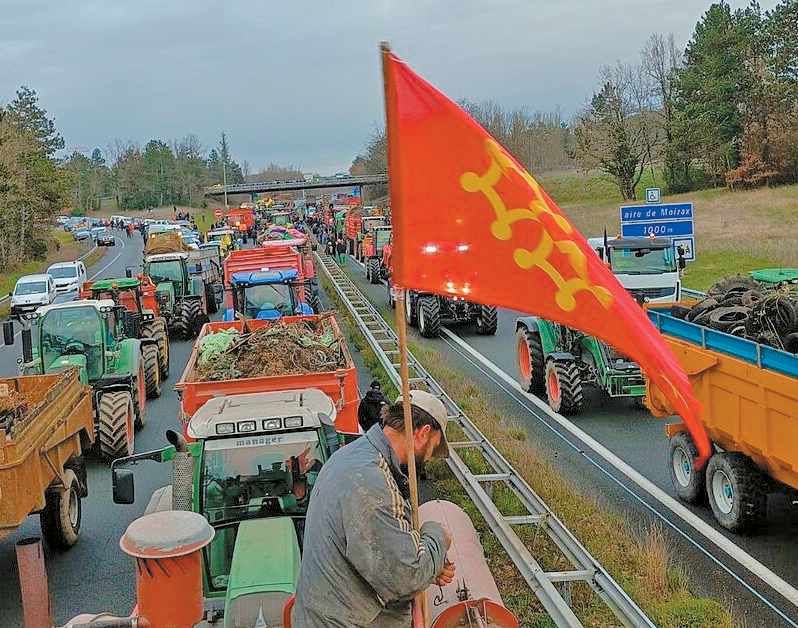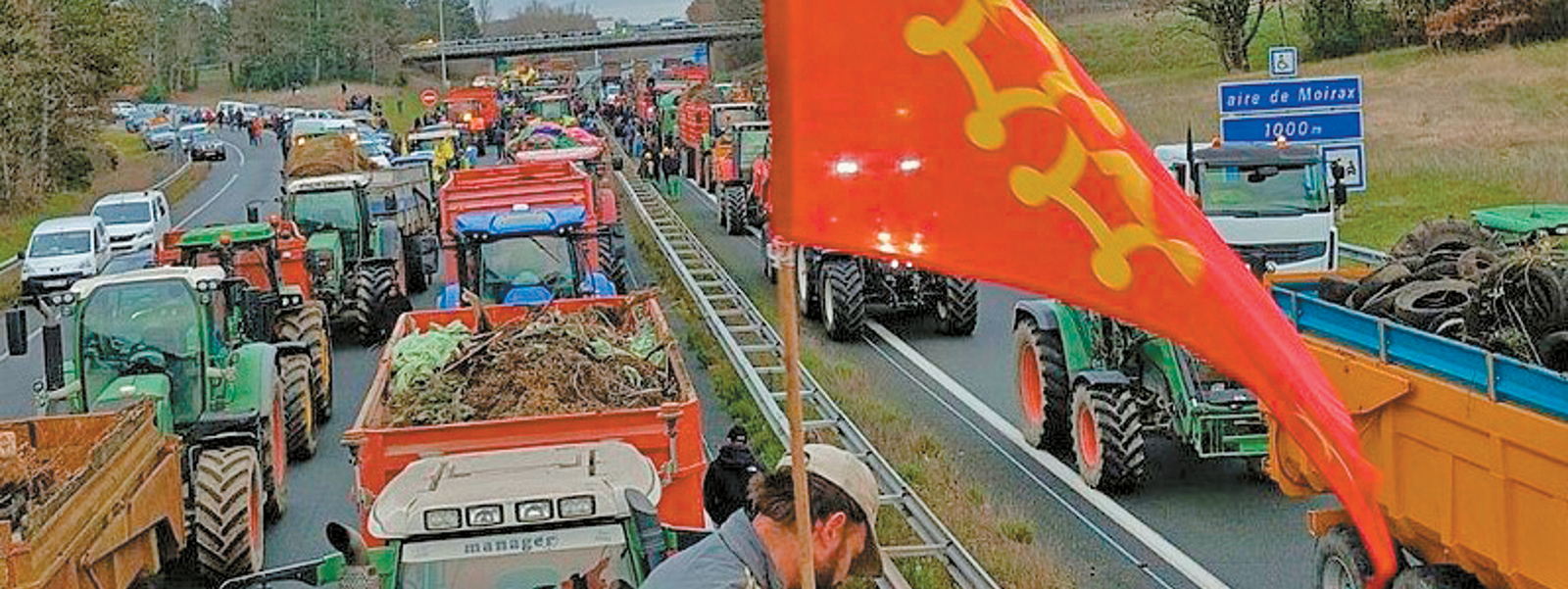Commentary: Explaining why farmer protests are raging globally

Farmers block a highway in Agen, France, in demonstrations against European Green Deal proposals seen as harmful to agriculture. Some similar policies are being considered in California.
Photo/Raymond Trencavel/CCO 1.0 via Wikimedia Commons


By Amrith Gunasekara
Farmers around the world are making their voices heard through protests and organized political actions and achieving success in defeating misguided policies that harm food production.
In France, farmers used tractors to block highways into Paris and piled high bales of hay at a border crossing to Spain. In Brussels, farmers protested outside the European Union headquarters. In India, they marched to the capital of New Delhi, massing before police barricades.
India and the EU are home to almost 2 billion people, or a quarter of the world’s population. Agriculture in these regions is central to ensuring food security, and farmers are airing frustrations over shrinking incomes, cuts in agricultural subsidies, rising inflation and regulatory burdens.
As in California, French farmers struggle for access to water for irrigation. They’re criticized over animal welfare and pesticide use while saddled with high fuel prices and production costs that exceed farm sales.
In California, farming costs are also fast increasing. Despite record moisture levels, there are still limits on water use for agriculture. And safe, commonly used pesticides are on the chopping block for regulators.
The California Department of Pesticide Regulation has a new effort called Sustainable Pest Management. It seeks to reduce available pesticide tools for farmers while appeasing environmentalists by deregistering pest-control materials that protect our food supply. The SPM roadmap calls for eliminating use of priority pesticides by 2050.
Research studies by the California Bountiful Foundation, the 501(c)(3) nonprofit science and research organization of the California Farm Bureau, show that increased regulations and deregistration of pesticides lead to higher food costs. In addition, farmers in regions with high regulatory standards, such as the EU and California, often cannot compete with cheap imports that do not have to comply with the same regulations.
It is commonly understood that regulations lead to higher costs. The implications are significant for policies that push locally grown agricultural products. When the local cost of production in regulation-heavy regions exceeds the cost of less-regulated imports, the imports make their way into grocery stores over the more-expensive local products.
In California, farmers see cheaper imports coming in from Mexico and South America, where regulations fall well short of California’s environmental standards for agriculture.
In the EU, farmers are mobilizing in response to concerns about an environmental policy known as the Green Deal. It calls for limits on pesticide use and greenhouse gas emissions. One of the pillars of the Green Deal is “a zero-pollution ambition for a toxic-free environment.” The provision seeks to cut in half the number of available chemical crop protection products by 2030 and ban their use entirely in certain areas.
European farmers are also protesting an EU requirement to leave 4% of agricultural land fallowed. Similar initiatives are on the table in California for farmers, though they are structured differently. The Multibenefit Land Repurposing Program by the state Department of Conservation pays farmers to take land out of production to lessen water use.
Another thing the EU and California have in common is the degree to which environmental politics and language such as “sustainability” are incorporated into the EU Green Deal and California policy initiatives for agriculture. Yet the same intensity is lacking when it comes to working to protect food security and agricultural production, despite ominous disruptions to the global food system, including supply-chain challenges, soaring farm input costs and the Russian invasion of Ukraine that upset grain production worldwide.
In Europe, farmer protests have shown remarkable success in rolling back misguided farm reforms. Breaking with the Green Deal and Farm to Fork framework, European Commission President Ursula von der Leyen announced that she would withdraw the draft “Sustainable Use Regulation” that sought to halve the use of chemical pesticides in Europe by 2030.
In response to farmer protests, the European Commission adopted regulations that grant partial exemptions from land fallowing requirements. After demonstrations in India, the government dropped new rules that would have undercut price guarantees for farmers.
While California hasn’t seen such turbulent protests, there is significant overlap here with challenges and ill-conceived policies facing farmers elsewhere.
The California Farm Bureau, our state’s largest agricultural organization, works to protect family farms and ranches. It supports important agricultural research through its California Bountiful Foundation. It amplifies the voice of farmers, ranchers, agricultural businesses and advocates for sensible policies to protect and enhance our vital farming sector.
We share a mission with fellow farmers elsewhere, standing up for agriculture that feeds the world.
(Amrith Gunasekara, Ph.D., is director of science and research for the California Bountiful Foundation, an affiliate 501(c)(3) of the California Farm Bureau. He may be reached at agunasekara@cfbf.com.)




